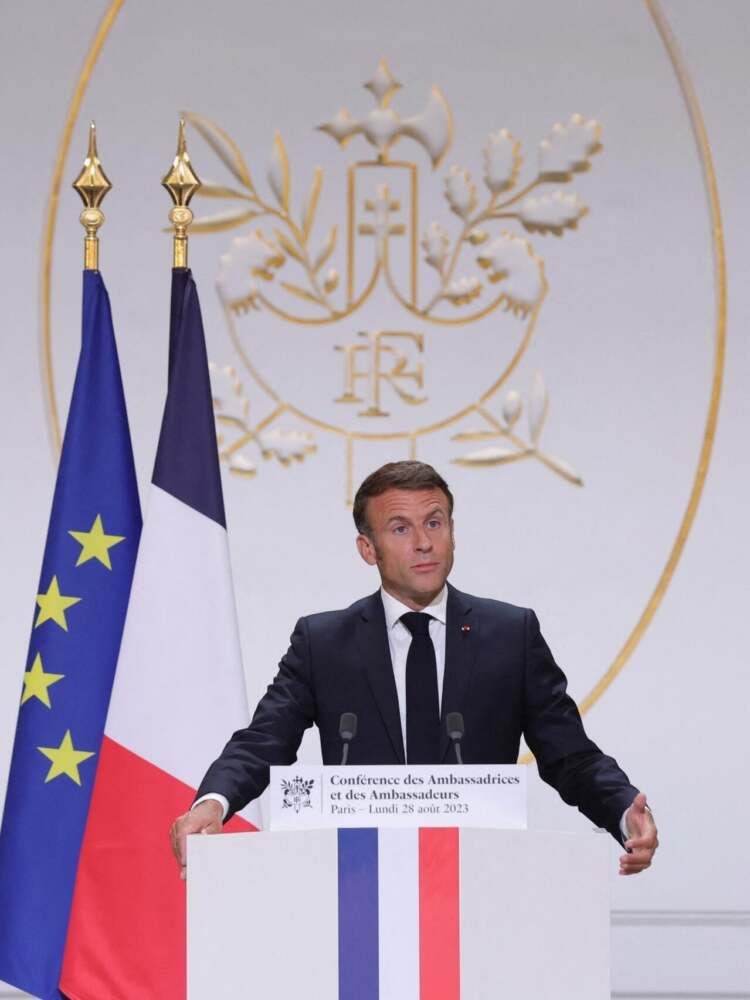A tense exchange during a recent White House press briefing has ignited a wave of criticism after President Donald Trump made a remark to a French journalist that many have described as dismissive and disrespectful. The moment, which occurred during a discussion on foreign trade and diplomatic relations, has since drawn attention from both domestic and international observers who view it as part of a larger pattern of strained relations between the Trump administration and the press.
The Exchange That Sparked Controversy
During the press conference, a French reporter stood to ask a question regarding U.S.–European trade negotiations. As she spoke, President Trump interrupted, commenting on her “beautiful accent” before adding that he “could hardly understand a word” she was saying. The room fell silent for a moment, and though the president appeared to intend the comment humorously, many journalists present viewed it as undermining and inappropriate.
The reporter maintained her composure and repeated her question, to which Trump responded briefly before moving on to another reporter. However, the interaction quickly became the focus of widespread discussion across media circles, reigniting debates about the tone and professionalism of the administration’s engagements with the press.
Backlash from Media and Diplomats
Following the event, journalists’ associations and international press groups condemned the remark, arguing that it disrespected not only the reporter but also the broader principle of press freedom. Critics noted that mocking a journalist’s accent or nationality sends a negative message to foreign correspondents working in Washington, many of whom play key roles in interpreting U.S. policy for global audiences.
A spokesperson for a European media association stated that such moments “undermine mutual respect and diminish the dignity of the press room,” emphasizing that journalists from all nations deserve professionalism and courtesy, regardless of language barriers or cultural differences.
Diplomatic observers echoed similar sentiments, noting that the United States has long been seen as a global symbol of free expression and that such behavior risks eroding that reputation. “When the leader of a democracy mocks a foreign journalist, it does more than cause embarrassment—it weakens America’s moral authority,” said one former ambassador.
Supporters Defend the President
Not everyone viewed the incident as offensive. Supporters of the president defended his comments as an attempt at humor and accused the media of overreacting. Some argued that the president’s straightforward style often clashes with traditional diplomatic expectations, but that his intention was not malicious. “He’s just being himself,” one political ally commented. “The media are too sensitive.”
Still, others within his own party acknowledged that such remarks can be damaging in the long run, especially as the administration continues to navigate delicate trade negotiations with European allies.
A Pattern of Tense Relations with the Press
This episode adds to a long list of confrontations between Trump and members of the press—both domestic and foreign. Since his first term in office, his interactions with journalists have often been marked by interruptions, personal remarks, and dismissive language. He has repeatedly accused reporters of spreading “fake news” and portrayed the media as adversarial rather than essential to democratic accountability.
Foreign correspondents, in particular, have expressed frustration over limited access and occasional hostility during press briefings. Some have reported feeling marginalized or singled out when asking questions that touch on sensitive topics such as international diplomacy, defense, or trade policy.
Broader Implications
Analysts suggest that moments like this have consequences beyond the walls of the White House briefing room. They influence how other nations perceive America’s leadership and how open the administration appears to global scrutiny. At a time when the United States is working to strengthen alliances and negotiate complex economic partnerships, tone and respect in communication matter deeply.
Political experts warn that undermining international journalists risks alienating allies whose cooperation is essential on trade, security, and climate issues. “Diplomacy isn’t just about treaties—it’s about trust,” one expert said. “And trust starts with respect.”
Moving Forward
The French journalist involved has declined to make a public statement, but her network reaffirmed its commitment to professional, fact-based reporting. Meanwhile, press freedom advocates have urged the administration to adopt a more respectful tone toward reporters, emphasizing that open dialogue between government and media is crucial for transparency.
As the administration continues to prepare for major trade negotiations and foreign visits, the incident serves as a reminder that words spoken at a press podium can resonate far beyond a single exchange. In an age of instant global communication, moments of disregard or mockery can carry diplomatic weight—shaping perceptions of leadership, civility, and America’s role on the world stage.
















Leave a Reply